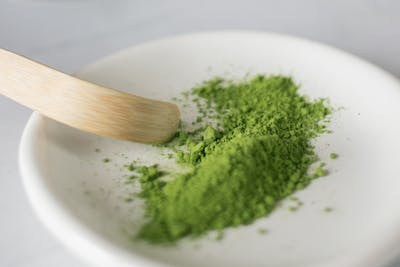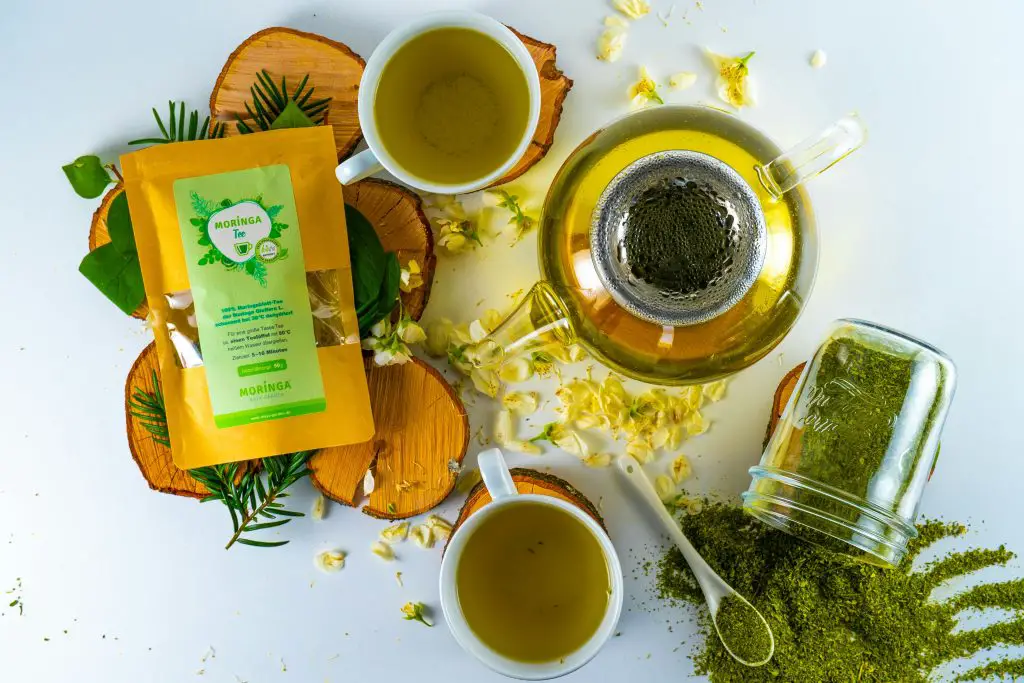Edited & Fact Checked By Disha Arora | MD, Pathology.
Moringa Oleifera, commonly called “miracle tree” or “drumstick tree,” is widely used because of its rich nutrition and potential health benefits. The plant is known for its anti-inflammatory properties and is thus largely consumed as a natural anecdote for many illnesses.
Native to India and East Africa, the plant has been used in ancient medicines and ayurvedic treatments for vitality and strength.
Moringa is densely packed with essential nutrients, including vitamins, minerals, and antioxidants. This nutrient density is believed to contribute to its positive influence on various bodily functions, including those associated with kidney health.
Moringa can be consumed in numerous ways to access its benefits for your kidneys. One of the ways that I like to consume Moringa is having it as a tea.
The kidneys, vital organs that filter waste and excess fluids from the bloodstream, are pivotal in maintaining overall health. In this article, we will dive deeper into the benefits of Moringa for kidney stones and its impact on the overall kidney health.
What is Moringa?
Moringa stands out as a versatile and edible plant; every component, from roots to sap, flowers, and seeds, is consumable. In Indian culinary traditions, particularly in the southern regions, its pods and leaves are commonly used to create delicious dishes like Moringa leaf bhaji and dal infused with Moringa pods.
While Moringa enjoys status as a savory ingredient in Indian cuisine, it also makes an appearance in the Western health market as a nutritional supplement. Recognizing Moringa’s substantial health benefits, modern medicine advocates its regular inclusion in diets to harness the plant’s full potential.

To learn more about the benefits and nutritional facts of Moringa, you can check out the article below:
Nutritional Composition of Moringa
Moringa is considered a superfood as it contains a variety of nutrients. Moreover, it is essential to note that the nutritional composition may vary due to different climates, growing conditions, extraction, etc.
Moringa contains more Vitamin C than oranges, more Vitamin A than carrots, more potassium than bananas, and more iron than spinach. Additionally, it contains proteins and 8 essential amino acids.
Due to the nutrients present in it, Moringa strengthens your immunity and protects against a variety of diseases.
Moringa For Kidney Stones and Overall Kidney Health: A Scientific Analysis of Potential Connections
Moringa reduces the formation of kidney stone deposits and helps manage endogenous calcium oxalate crystal synthesis. Its extracts are widely used to prevent stone formation in the kidney, bladder, and uterus.
According to a study published in the Journal of Ethnopharmacology, Moringa roots possess antiurolithic activity, which ultimately decreases urinary oxalate levels to a great extent.
Additionally, Moringa is well-known for preventing damage caused by nephrotoxicity. It has been reported that due to antioxidants, Moringa decreases the severity of renal diseases and injuries.
One study demonstrated that Moringaoleifera leaves decrease the nephrotoxicity caused by gentamicin by inhibiting the peroxidation of lipids. The water was treated with various other seeds along with Moringaoleifera.
However, the results showed that Moringa had the highest ability to remove heavy metals from water because of its bio-adsorbent properties.

Potential Benefits for Kidney Health (5 Benefits)
It helps support kidney function by preventing the formation of kidney stones and other renal diseases. Here, we discuss the impact of Moringa on kidney health:
1. Antioxidant Properties
Moringa’s antioxidant properties are crucial in supporting kidney health by neutralizing harmful free radicals. Free radicals can cause oxidative stress, which may damage cells and contribute to various health problems, including kidney damage.
The kidneys are vulnerable to oxidative stress because they filter and excrete waste products from the blood. Improper detoxcan lead to kidney cellular damage. The antioxidants in Moringa help combat oxidative stress, reducing the risk of kidney damage and promoting overall renal well-being.
Oxidative stress plays a significant role in the progression of Chronic Kidney disease (CKD). Research has shown that Moringa supplementation lower oxidative stress in patients with CKD.
2. Anti-inflammatory effects
It may help lower chronic inflammation and improve overall kidney health. Kidney inflammation, often linked to various conditions, can compromise renal function.
Moringa leaves contain isothiocyanates – known for their anti-inflammatory properties – that may mitigate inflammation in kidney tissues
3. Antihypertensive potential
Moringa is a great antihypertensive agent as it helps to reduce blood pressure, ultimately reducing the potential risk of kidney failure. Moringa regulates blood pressure through various mechanisms that contribute to improved kidney health.
Firstly, it contains compounds that act as natural vasodilators, relaxing blood vessels and facilitating smoother blood flow. This helps reduce the resistance against the arterial walls, lowering blood pressure levels.
Moreover, Moringa is rich in potassium, a crucial mineral that helps balance sodium levels in the body. This balance is essential for maintaining healthy blood pressure, as excess sodium can lead to hypertension.
By promoting this sodium-potassium equilibrium, Moringa aids in preventing high blood pressure, subsequently benefiting the kidneys.
4. Diuretic properties
Moringa leaves cause diuresis as they increase urine production and fasten eliminating waste products from the body. This increased urine output helps flush out waste products, toxins, and excess salts from the body. This ultimately helps to reduce the workload of kidneys.
Diuretics can help reduce fluid retention in the body, which is vital for maintaining a healthy balance of fluids. Excess fluid retention can lead to edema (swelling), particularly in the legs and ankles. By promoting urine production, Moringa may assist in managing fluid balance.
5. Anti-diabetic properties
Moringa’s anti-diabetic properties make it a valuable ally in the fight against kidney disease. Diabetes is one of the leading causes of chronic kidney disease (CKD), and Moringa’s ability to regulate blood sugar levels can help in preventing diabetic nephropathy, a condition characterized by kidney damage due to diabetes.
Does Moringa Have Side Effects?
The various parts of the Moringa oleifera plant, including its leaves, seeds, bark, roots, sap, and flowers, are commonly utilized in traditional medicine, and the leaves and young seed pods are consumed as nutritional food sources.
The leaf extracts show the highest level of antioxidant action. Animal-based safety assessments involving aqueous leaf extracts have revealed a considerable margin of safety without reported negative effects. In human research, no unfavorable outcomes were associated with the use of Moringa. However, consumption of Moringa is associated with anti-diabetic (lower blood sugar) and anti-dyslipidemic (lower lipids) levels.
It has also been reported that bark and sap may be harmful to pregnant women as the chemicals present in it cause uterus contraction, which may lead to miscarriage. Therefore it is recommended to consult a healthcare professional to avoid potential health risks. Moringa is available in many forms, such as powder, pills, oil, tea, and supplements, which are safe to consume.

Incorporating Moringa Into Your Daily Routine
Buy from reputable brands of high-quality Moringa products from trusted websites and suppliers that follow good manufacturing practices.
Start consuming Moringa in smaller doses and gradually increase it as your tolerance level increases to prevent any adverse effects.
You cannot expect kidneys to be healthy by only consuming Moringa. Incorporating it into your daily routine along with a healthy diet, exercise, and proper hydration is necessary.
Cautions for Users: Despite the exciting findings, Moringa is not a cure-all. It can potentially interact with medications and exacerbate health conditions when consumed in overly large doses.
It’s always suggested that individuals seek medical guidance before incorporating it into their diet, especially those with pre-existing kidney issues. Tracking your kidney health by blood tests and checkups with your healthcare provider will help you ensure that Moringa is safe for you or not.
Conclusion
Moringa’s rise to prominence in the natural health landscape is underlined by research, and its impact on kidney diseases looks promising, but it’s essential to remember that you cannot rely solely on Moringa for supporting kidney health.
However, keep in mind that Moringa should only be used as a complementary therapeutic drug but not as an alternative to a balanced diet and exercise for protecting against kidney failure.

Tara is a nutrition enthusiast with a passion for superfoods like Moringa and pomegranate. She has over 10 years of experience as a professional writer and researcher and specifically covers topics around the health benefits of superfoods, and provides readers with valuable knowledge and insights.
